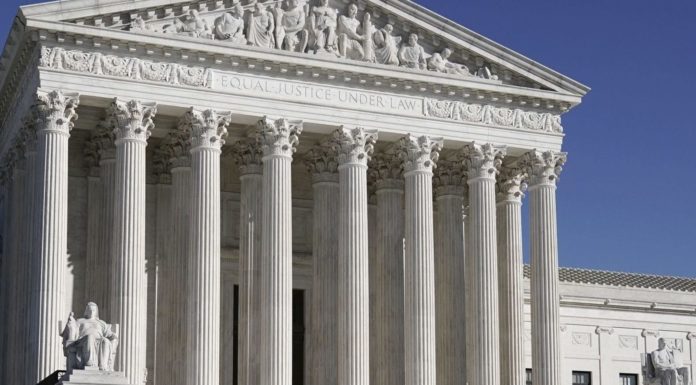(Law & Crime) The Supreme Court of the United States will hear oral arguments Monday in Cedar Point Nursery v. Hassid, a case about the union rights of farmworkers. It could impact the future of anti-discrimination law and much more.
The plaintiffs in the case are two California fruit producers who are suing over a 1975 state regulation that allows union organizers to have temporary access to an agricultural employer’s property during non-work hours. The law’s rationale is to support workers’ right to unionize by allowing workers access to their workplace premises for after-hours meetings.
California law requires agricultural businesses to allow labor organizers onto their property three times a day for 120 days each year. The state contends that the regulation is necessary in the specific context of farming: farmworkers tend to be inaccessible to union organizers through other channels, and farm properties lack parking lots or public areas that other workers typically use for gathering.
From California’s brief:
[Farmworkers] are highly migratory, moving to follow the harvest every few weeks or months; they often live in temporary housing, sometimes on their employer’s property; they frequently lack access to modern telecommunications technology; many speak only indigenous languages; and many are illiterate even in their native language. The Board’s regulation authorizes a limited number of organizers to access the property of agricultural employers, for brief periods, during non-work hours, solely for the purpose of discussing organizing with employees, and only after notifying the Board and the employer.
Cedar Point Nursery and Fowler Packing Company sued to have the law invalidated, and their argument is based on land use. They say that the law allowing union organizers to meet with workers on their property is an easement that amounts to a per se “taking” — something that would require compensation under the Fifth Amendment.
The after-hours union meetings don’t disrupt the employers’ businesses, and the state of California isn’t actually taking the property — so to make a Fifth-Amendment argument, the plaintiffs needed to frame their loss as interference with a guarantee that is constitutionally protected. They chose the “right to exclude unwanted persons.” In other words, the California unionizing regulation deprives the owners of their inherent property right to kick people off their land…
Now, SCOTUS will decide whether the Fifth Amendment protects a right to exclude on par with other inherent property rights.



